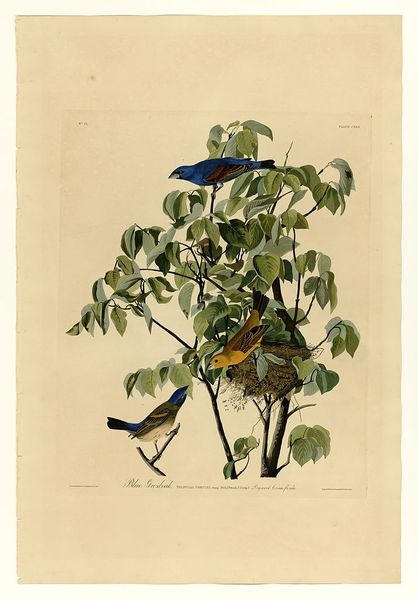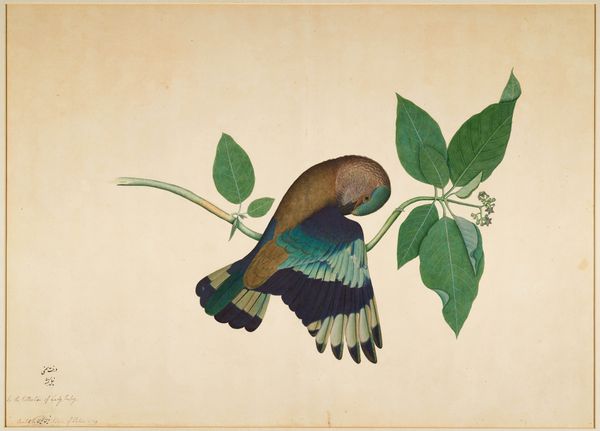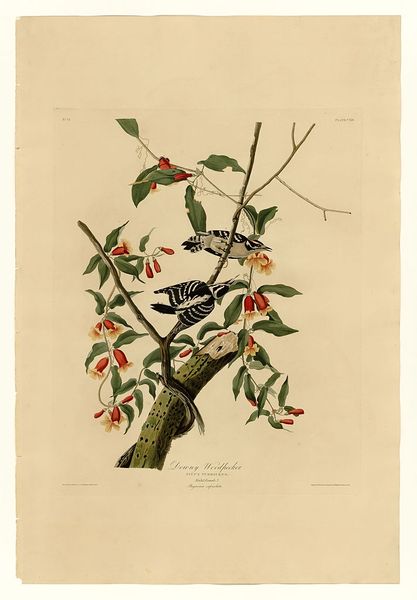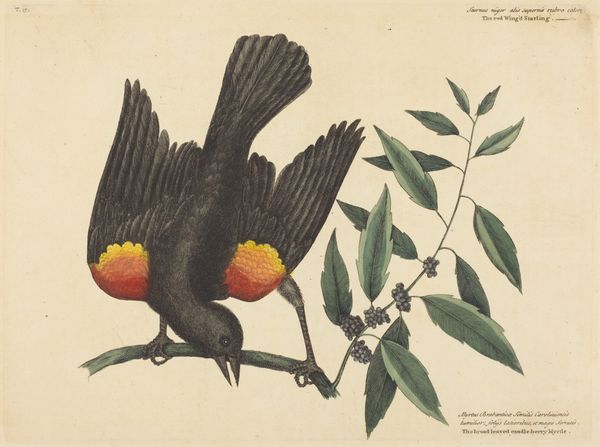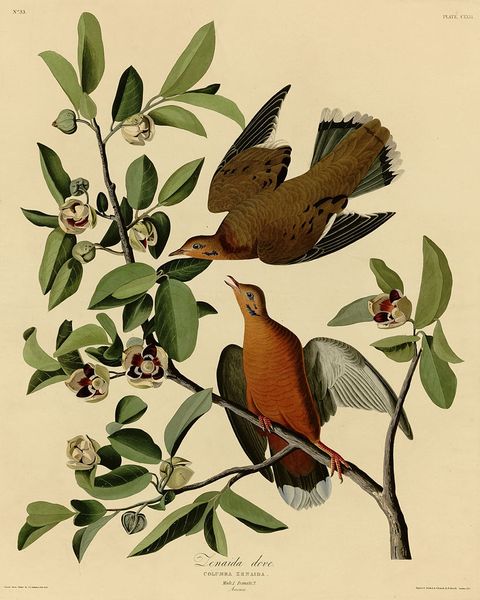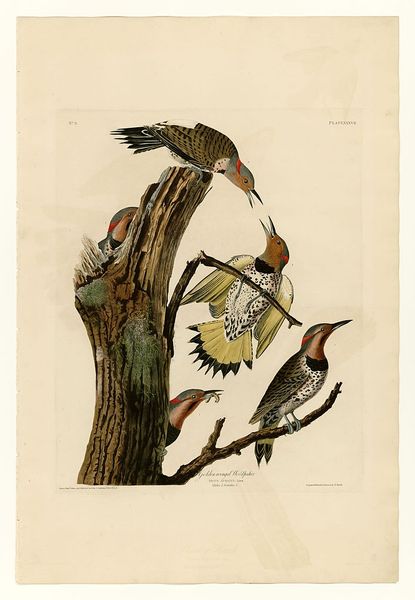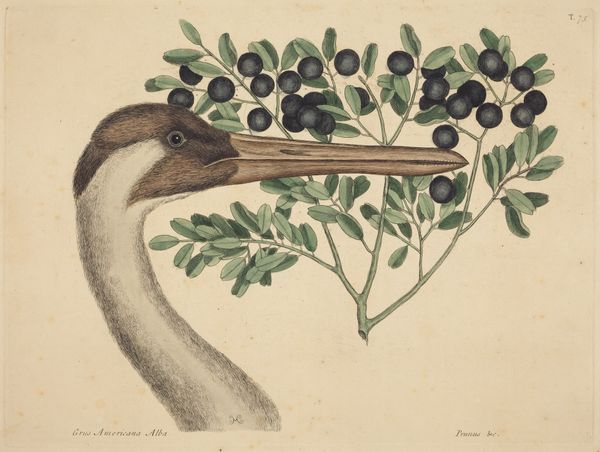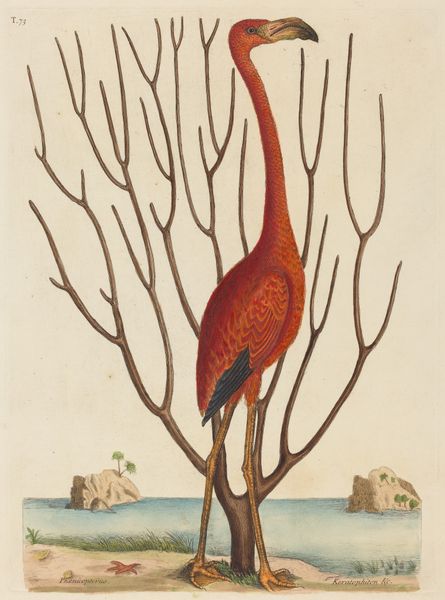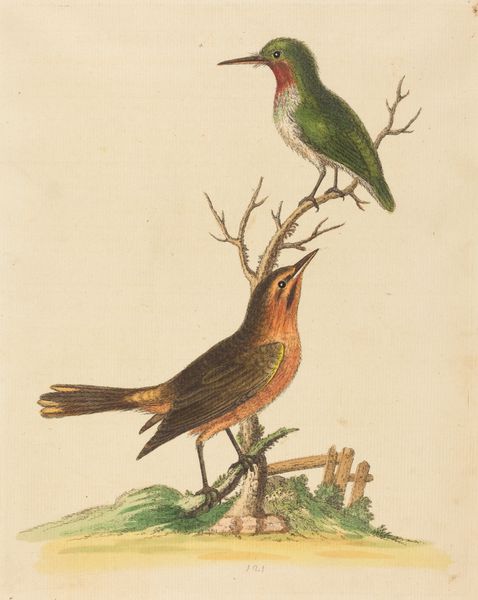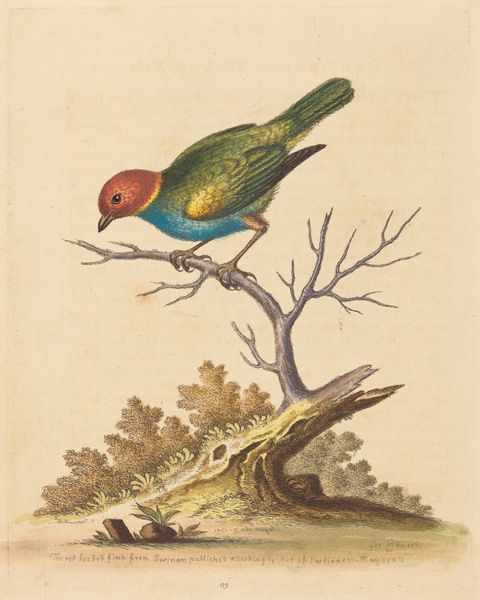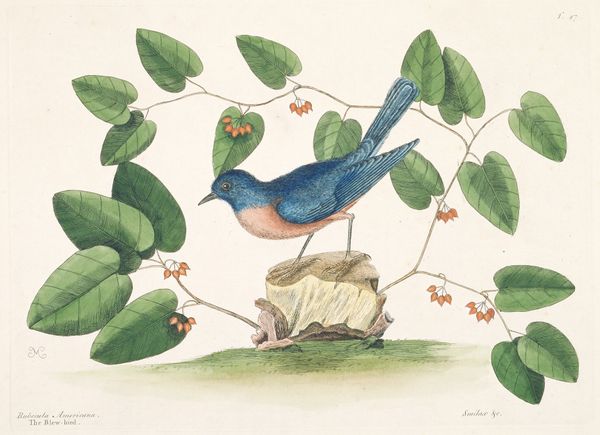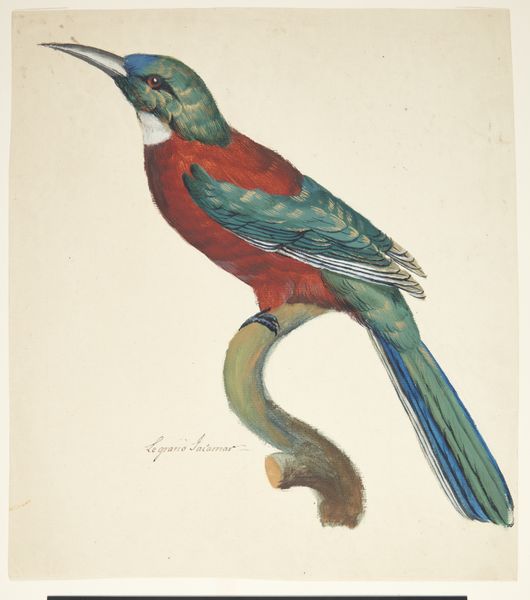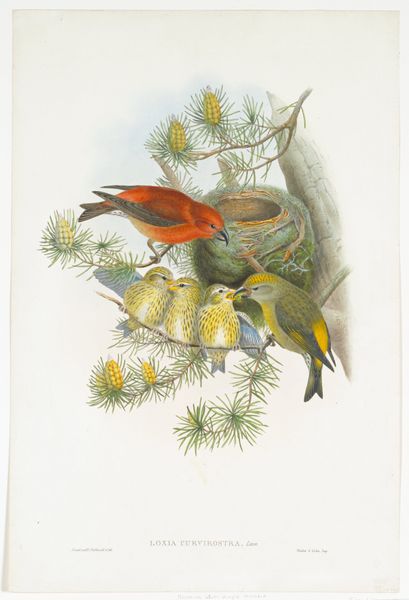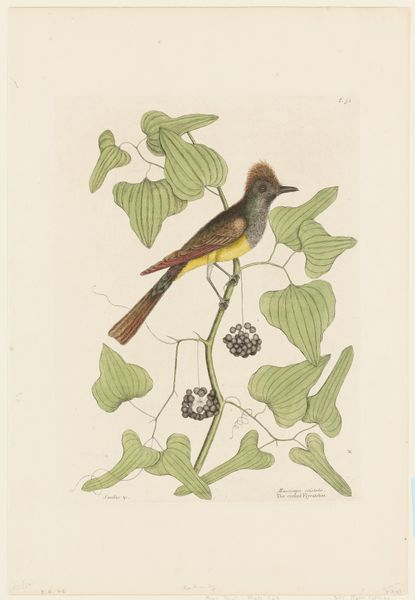
The Fieldfare of Carolina (Turdus migratorius) Possibly 1731 - 1743
0:00
0:00
drawing, print, watercolor
#
drawing
#
animal
# print
#
landscape
#
watercolor
#
watercolour illustration
#
watercolor
Dimensions: plate: 26 x 34.4 cm (10 1/4 x 13 9/16 in.) sheet: 36.4 x 50.8 cm (14 5/16 x 20 in.)
Copyright: National Gallery of Art: CC0 1.0
Mark Catesby etched and hand-colored this image of 'The Fieldfare of Carolina' in the early 18th century. The lifeless bird, presented unnaturally on its back, and the plant, likely the Aristolochia or 'snake root,' invite us to explore symbols of life and death. The inverted posture of the bird, its feet raised in the air, is a motif echoing back to antiquity. Think of the fallen figures in battle scenes, or the reversed bodies in depictions of the crucifixion. This posture speaks to a universal understanding of mortality. The snake root itself carries intertwined associations: a remedy for poison, yet also a reminder of the serpent, a creature often linked with both healing and destruction. Consider the symbolic weight of these images. The collective subconscious remembers life, death, and rebirth. It is through such repeated symbols that we begin to unravel the complex tapestry of human experience. Through time these symbols transcend the natural world and take on new meanings in each cultural context.
Comments
No comments
Be the first to comment and join the conversation on the ultimate creative platform.
